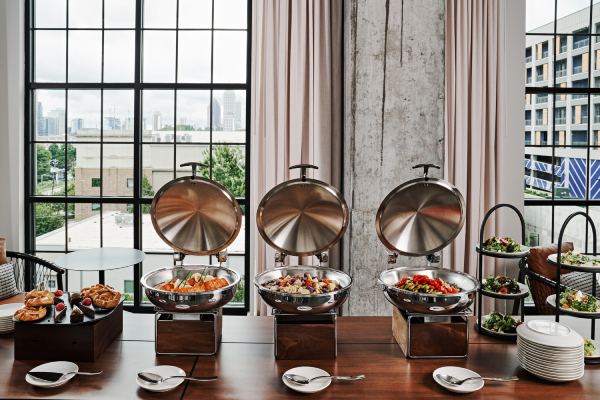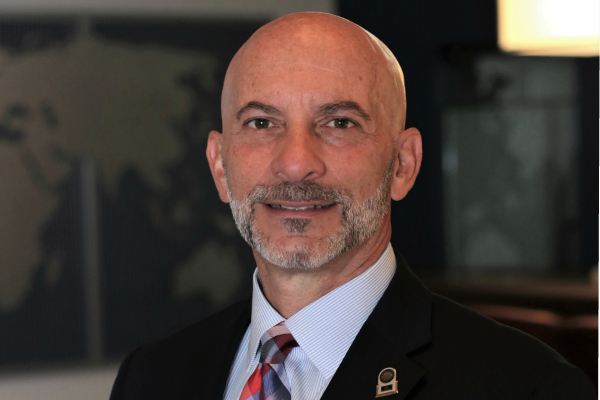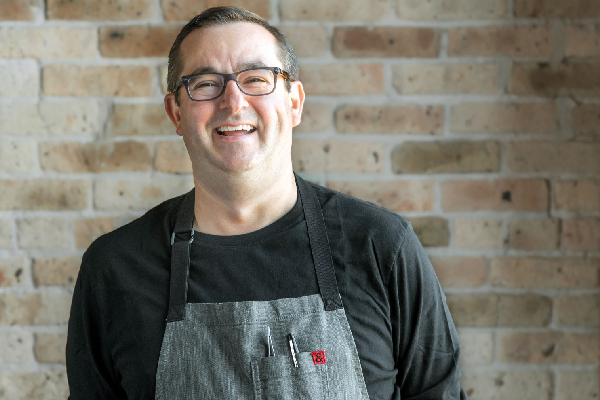One of the highlights of traveling is the all-you-can-eat breakfast buffet spread at hotels. What’s a better way to start the day than strolling into the dining hall and being greeted by trays of fluffy omelets, lavish spread of cheeses and cold cuts of meat, plates of bacon along with urns of cereals and juices, and shamelessly helping yourself to piles of hash browns, mini pastries and pancakes? As the travel industry adapts to the new normal amid the COVID-19 pandemic, it seems the first casualty of the new safety norms is the breakfast buffet. With hotels reducing shared surfaces and minimizing human contact, has the breakfast buffet gone for good or is it here to stay?
Innovative options
Although hoteliers feel breakfast buffets haven’t gone for good, they have introduced new forms of breakfasts — pre-packaged meals, grab-and-go bags/takeaways, a la carte menu with limited options, “knock and drop” options at guest rooms and room service.
Grab-and-go bags have emerged as the go-to option with servings of fruits, breads, muffins, yogurt, granola bars besides beverages like juice, coffee and water.
“We like to package as though you were going on a picnic, and have everything you need once you leave,” Todd Stein, corporate executive chef, Davidson Restaurant Group tells HOTELS.

For Hilton, the past 18 months has helped them rethink and reimagine their services and innovate at a fast pace. “We have adopted new contactless technologies in select hotels, including the use of QR codes to digitally access menus as well as order, pay and pick-up their meal selections. We expect that these new products and innovations, among others, will have a place in the hotel experience post-pandemic,” says Adam Crocini, global head and vice president, food & beverage brands, Hilton.
Grab-and-go meals have been a fixture of Hilton hotels even before the pandemic, Crocini adds. “Today, our hotels across U.S. and Canada are in the process of reinstating a refreshed breakfast experience to offer the value guests seek alongside the choices they crave for their morning travel routine.”
Use of sustainable materials
Hotels are mindful of the packaging and using sustainable, biodegradable materials.
“It all starts with the packaging. It should feel upscale, but we also encourage our hotels to use sustainable, ecofriendly materials as we know it matters to corporate customers and guests,” says Chris DeRamo, global director food & beverage lifestyle, luxury & premium brands, IHG Hotels & Resorts. He adds that their hotels offer a bento box instead of a traditional food bag. “We also recommend that our hotels stay away from frozen products and create fresh items to give guests a balanced offering. When possible, we recommend they use local ingredients and products for a more upscale or luxury offering.”
Future of pre-packaged breakfasts
While pre-packaged meals offer a great alternative to buffet spreads, hoteliers feel the trend will continue only in the short-term. As pandemic restrictions begin to ease and travel picks up pace, many hotels are gradually resuming breakfast buffets for the convenience of guests.
Best Western Hotels & Resorts, which had modified breakfast offerings at the beginning of the pandemic in 2020 to include grab-and-go options, table service and pre-plated meals, has discontinued the grab-and-go options at all its properties from July 15, 2021, barring those located in states with government restrictions. They, however, continue to provide grab-and-go options for guests who check out before breakfast room hours, a practice which has been in place even before the pandemic.
“In general, our hoteliers are encouraged to lean into a staff-served or pre-plated approach to provide guests with a healthy, safe, and high-quality breakfast experience. We expect the trend of pre-packaged meals will continue to grow in popularity among our guests and across the hotel industry with the increased focus on health and safety,” says Ron Pohl, senior vice president and chief operations officer at Best Western Hotels & Resorts.

Many hotels, however, feel pre-packaged meals may not last for too long. Four Seasons and Shangri-La properties at London, Dubai and Mauritius opted out of this new trend and instead served breakfast at tables, offering guests digital menus via QR codes, or had chefs/waiters assisting guests at buffet tables while maintaining social distancing norms.
The option of pre-packaged meals will not remain a frequent request as more travelers become vaccinated, points out Four Seasons Hotel Atlanta Executive Chef Edgar Kano.
Change in costs
The new breakfast options have brought about a significant change in costs and ROI. Most hotels report a change in packaging costs as they are now being used a lot more.
Best Western’s Pohl says the limited breakfast offerings have reduced operation costs, which is “incredibly helpful” for them as the industry continues to recover from the pandemic. “It’s important to find a balance, however, as we need to make sure we’re meeting guest expectations, especially since rates are up to 20% to 30% higher than pre-COVID,” he says.
Zein Khalaf, communications executive at Shangri-La, Dubai, says after the hotel introduced SABA Hospitality — a solutions provider which enables guests to order anything from the comfort of their rooms, be it food or room amenities — it has been upselling and generating revenue increases per month.

Minimizing food waste
One of the positive outcomes of the new breakfast offerings is cutting down on food waste. While traditional buffets offer the luxury of abundance and variety, it also generates a massive amount of waste. The pandemic has shed a light on how to be more sustainable, Pohl adds.
“Prior to the pandemic, breakfast buffets across many hotel chains had expanded to include a variety of offerings. While it’s important to cater to customer needs, it’s also sometimes wasteful when you have too many options that don’t end up getting eaten,” he says.
Besides packaging specific amounts of food in grab-and-go bags, the implementation of a la carte and digital menus is also helping hotels in curbing food waste.
Future of buffets
Despite the new and innovative offerings, breakfast buffets are poised to make a comeback, albeit with some modifications.
Breakfast buffets will eventually return as they serve a necessary purpose for serving large numbers of people quickly with a variety of options, says IHG’s DeRamo. “We are looking at using buffets when we have high occupancy or for events rather than for daily use.”
Buffet never completely went away, says Hilton’s Crocini. Hilton has resumed buffet services at most of their hotels, having adjusted their experience throughout the pandemic based on the market, space availability and local health guidance norms. Hilton’s buffet areas now feature additional sanitization stations, minimized buffet set ups, application of sneeze guards, cloches for displayed or exposed food items, disposable glove stations at the end of each buffet stations and adjusted seating to enable physical distancing.
“Breakfast remains a crucial element of the guest journey, and while our guests have largely been understanding of the new options, they increasingly expect the return of our breakfast experiences,” DeRamo says. “In the U.S., our Holiday Inn Express hotels are transitioning to a modified self-serve breakfast that ensures social distancing, limits product exposure and reduces communal touch points.”
While Four Seasons Hotel Atlanta had halted brunch from March 2020, it was resumed with a new structure from November 2020. Their buffet stations were spread across their mezzanine level, with attendants serving food to the guests. Since guest feedback has been positive, Four Seasons Hotel Atlanta continues to serve Sunday Brunch in this new format, Kano says.

Buffets are here to stay
Despite the new hygienic, safer breakfast offerings, nothing can beat the sheer volume and variety of buffets, making many guests wonder when buffets will resume.
Breakfast buffets are still very popular among children and families, says Sabrina Sobrayen, assistant director of communications, Shangri-La Le Touessrok Mauritius, adding that buffets are still a viable option with the possibility to serve guests at the table after they have made their choices with the chefs at the live cooking stations.
People want the breakfast experience to go back to the pre-pandemic ways as soon as possible, says Davidson Restaurant Group’s Stein. “Breakfast buffets aren’t gone for good; they will return in the future in a modified and better way.”
Best Western’s Pohl concludes, “I’m hoping our industry can align on its approach to breakfast, keeping in mind ways to be more sustainable and improve operations, without compromising the guest experience.”
3 comments
Comment
You must be logged in to post a comment.

Thomas Broder
September 2, 2021 at 12:17 pmI can’t stress how important a hot breakfast is with certain hotel brands. After working in the hotel industry for twelve years, the number one complement I received from friends and guests is how impressed they were with La Quinta hotels providing hot breakfast for the guests. This resulted in repeated stays for families and business travelers specifically looking for a La Quinta for their next stay.
Joe Aiello
September 2, 2021 at 2:41 pmAt our company, we build the infrastructures hotels need to provide their services, so we see the struggles required to deliver services that work both for guests and operators. I would love to hear more about breakfast bento boxes. However, breakfast buffets have always merited greater internal discussion at brand levels. “Getting up” is, of course, an essence of our business, so breakfast is an important offering, but only higher end properties can afford “fluffy omelets” and “lavish” spreads that are mostly subsidized by room revenues, Limited service hotels spend millions they often can’t justify revenue-wise and provide nothing of the sort, while guests walk right by and drive to Starbucks.
Regarding Grab ‘n Go, it really only works when the guest actually “goes” somewhere. There is very little “hospitality” in the equivalent of a third grade lunch bag.
We’ve long considered that an eventual optimum solution in the limited service environment will be something like a Starbucks-type coffee bar with or without a limited hot plated option.
Angelo Vassallo
September 2, 2021 at 6:25 pmDespite the evergreen artciles and discussion around the end of the buffet with assisted buffet, a la carte or grab & go as new alternatives, the traditional buffet will stay. Last week speaking with my parents in law, who use to travel, they told me that their best breakfast experience during the pandemic time was at an Austrian hotel where the breakfast buffet offer has not changed at all: the only requirement is to wear a mask accessing to the buffet, disinfecting your hands and use gloves. As well described in the article, the buffets have been a sort of differentiator for many hotels and the guests are looking forward to enjoy them again.